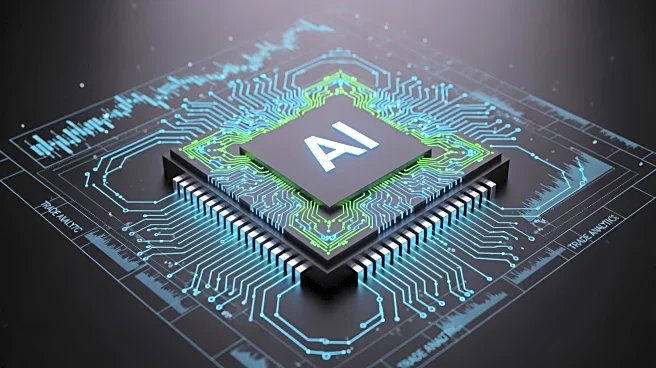What's Happening?
During EdTech Week in New York City, Sarah Johnson, CEO of Teaching Lab, and Abbas Manjee, co-founder and chief academic officer of Kiddom, emphasized the need for AI tools that support teachers rather than replace them. They argued that the current educational
technology should evolve beyond student-facing software to include tools that integrate seamlessly into classroom dynamics. The partnership between Teaching Lab and Kiddom aims to create an educational environment where AI assists teachers in delivering personalized learning experiences. Johnson highlighted the need for a new classroom operating system that provides actionable insights to teachers, rather than just data. Manjee compared AI's potential role in education to the human nervous system, suggesting it should handle computational tasks to allow teachers to focus on creativity and student engagement.
Why It's Important?
The integration of AI in education has the potential to transform teaching methods and improve student outcomes. By focusing on tools that enhance teacher-student interactions, the initiative seeks to address the '5 percent problem,' where effective educational tools fail to reach a significant number of students. This approach could lead to more personalized learning experiences, making education more inclusive and effective. The emphasis on collaboration between ed-tech companies and educators could result in more practical and impactful educational technologies. This shift is crucial as it aligns technological advancements with the core educational mission of fostering student learning and engagement.
What's Next?
The next steps involve further collaboration between ed-tech companies and educators to refine AI tools that genuinely support teaching. This includes ongoing research and development to ensure these tools are effective and widely adopted. The focus will be on creating a cohesive flow between curriculum, pedagogy, and technology, ensuring that AI tools are used to enhance, not replace, the teacher's role. As these tools are developed, there will be a need for continuous evaluation of their impact on teaching and learning outcomes, with a commitment to long-term improvements in educational practices.
Beyond the Headlines
The ethical implications of AI in education are significant, as it raises questions about data privacy and the potential for technology to inadvertently widen educational disparities. Ensuring that AI tools are accessible and beneficial to all students, regardless of their background, is a critical consideration. Additionally, the cultural shift required to integrate AI into traditional teaching methods may face resistance, necessitating thoughtful implementation strategies that respect the unique dynamics of each classroom.
















